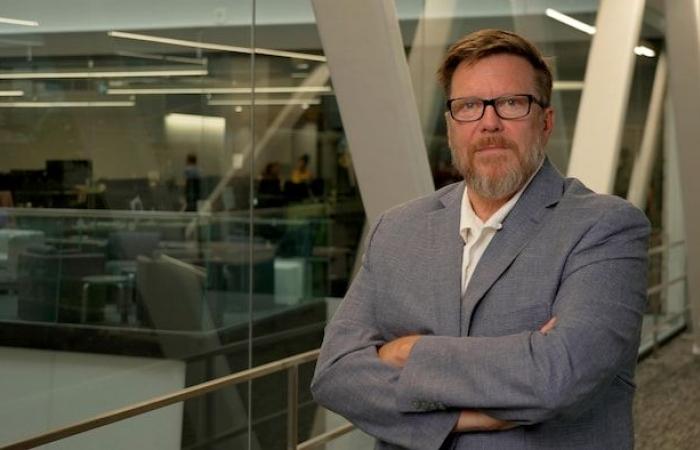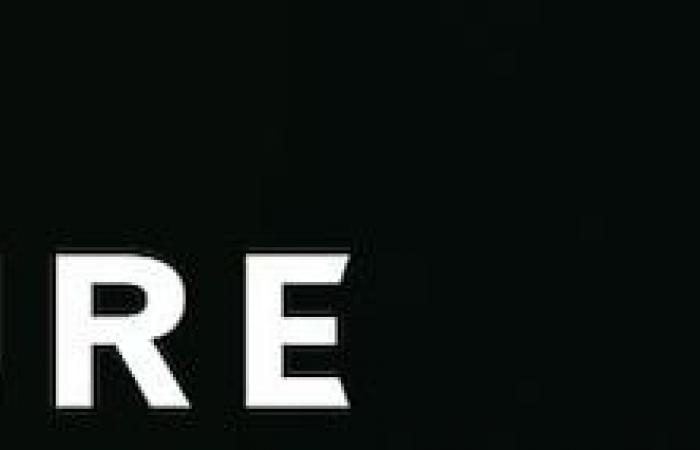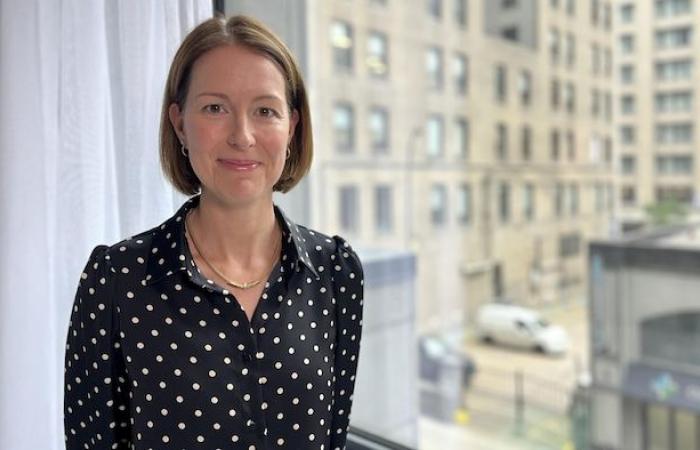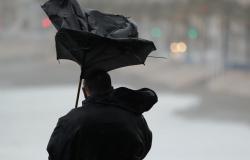A Quebec traveler is systematically intercepted and questioned when he goes to the United States because he is mistaken, wrongly, for a namesake with a criminal past. Fortunately, there is a little-known approach for those who experience this type of mistaken identity.
Danny Roy is a travel enthusiast and the United States is among his favorite destinations. Everything goes well until the summer of 2022 when he presents himself, with his family, at the border post of Jackman, Maine, on the border with Beauce.
I can clearly see that something is happening in the customs officer’s face. I am asked to get out of the car and taken inside. And there the interrogation begins. Where do I live? What do I do in life? And do I have armadillos? It lasts, I would tell you, a good half hour of questioning me, looking at me and staring at me
he tells The invoice. After which, American customs officials finally let him enter the United States.
Danny Roy has a valid passport and has no criminal record. But as he has one of the most common surnames in Quebec, he suspects that customs officials have confused him with one or other of his namesakes who have had run-ins with the law, including some more serious than others – one notably pleaded guilty to involuntary manslaughter.
No matter how serious the offense, if you have a name that resembles someone with a criminal record, you are going to be vetted, perhaps even prevented from entering the United States.
explains Michel Juneau-Katsuya, border security expert and former investigator at the Canadian Security Intelligence Service (CSIS). And this, even if your passport is valid, he adds.
Open in full screen mode
Michel Juneau-Katsuya, former executive and investigator at the Canadian Security Intelligence Service, points out that the data banks consulted by customs officers do not necessarily have a photograph associated with a person’s name.
Photo: Radio-Canada / Carl Mondello
An ineffective RCMP document
After this first mishap at customs, Danny Roy tries to find a solution. He has an official document made, with the seal of the Royal Canadian Mounted Police (RCMP), attesting that he has no criminal record.
This paper, which initially gives him a feeling of security, ultimately has little effect since he is again stopped and questioned several times by American customs officers. They don’t seem impressed by the document I have from GRC. Does it serve any purpose?
asks Danny Roy.
The problem we face is that documents can be falsified. So, there is a lot of latitude available to customs officials to decide whether the document is real or not.
Databases less efficient than in the films
With each arrest, it takes time for customs officers to verify the real identity of Danny Roy, and to ensure that it is not one of his namesakes with a criminal past. Because contrary to what Hollywood leads us to believe, databases have their limits in terms of photos of convicted or accused people.
At the moment, we cannot see the photos. The photos are usually kept at the police station or at the place where the arrest was made. What customs officers will have access to are the criminal databases of police forces. Contrary to what we see in the films, we do not necessarily have photographs associated with the databases which are checked by customs officials.
describes the ex-investigator to SCRS.
If an image bank were available, customs officers would probably have been able to see more quickly that the Danny Roy in our report was not another one with a criminal past.
A chaotic journey
In the winter of 2024, during his fourth arrest, Danny Roy’s troubles grow as he prepares to fly to Tampa Bay from Toronto. Like other travelers to the United States, he must pass through American customs at Pearson Airport, where he is questioned again.
But this time, the interrogation has direct consequences on the progress of his trip. When American customs officials authorized his entry into the United States, it was unfortunately too late. He misses his flight to Florida and has to buy another ticket to join his family who were able to board.
That’s not all. As he did not take his original flight, his return ticket is no longer valid. He has no choice but to buy a new ticket to return home. Total cost: nearly $1,300 that Air Canada initially refused to reimburse, only to change its mind after questions from The invoice.
Danny Roy then fully realizes the consequences of his namesake’s criminal record.
I really saw what it could be like to have a mix of identities. We can’t travel like that when we travel to the United States, it’s 2024.
Not a unique case
Danny Roy is probably not the only one in this situation, according to experts consulted. Since the attacks of September 11, 2001, the list of undesirables in the United States has grown longer and longer, according to immigration lawyer Sarah Pelud.
Initially, the list had 120,000 names. But today, it’s 2 million
specifies Me Pelud. She adds that on this list, drawn up by the American authorities, there are terrorists, criminals and even people suspected, but who have not been accused of anything.
For their part, the American border services, which refused our interview request, specify that there are around sixty reasons for refusing access to foreigners and that the presentation of valid documents does not guarantee entry into the United States. United.
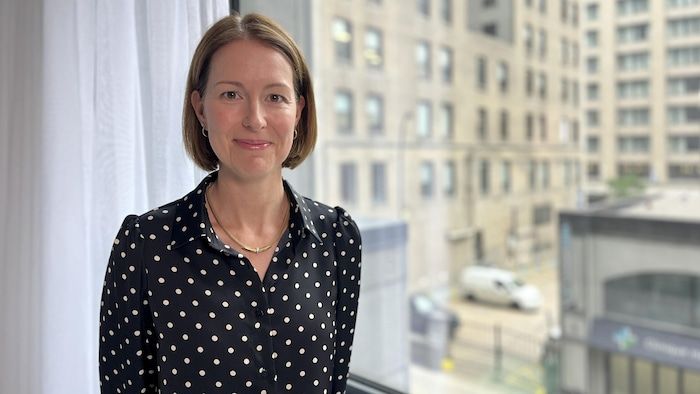
Open in full screen mode
The list of undesirable people in the United States now numbers 2 million names, according to Sarah Pelud, an immigration lawyer.
Photo: Radio-Canada / Jean-François Vézina
The Traveler Recourse Program
At Toronto’s Pearson Airport, Danny Roy was lucky enough to come across a friendly American customs officer who put him on the path to a solution: the US Department of Homeland Security’s Traveler Redress Program, created in 2006 People like Danny Roy, who have had repeated problems at the American border, can apply online.
After analysis, the United States Department of Homeland Security may or may not provide the applicant with a seven-digit adjustment number that can be entered when booking a flight. Basically, this number certifies that the person is not the one with whom they are confused at the border. Most of the time, when I take my clients through this process, we have favorable results. Unfortunately, there is no guarantee that it will be easier
notes lawyer Sarah Pelud.
To learn more about the Traveler Recourse Program:
Thanks to his turnaround act, all’s well that ends well for Danny Roy. His last two crossings of the American border went smoothly, much to his relief. But he would have liked to have been informed of this program earlier.
However, American customs officers, recalls Mr. Pelud, have no obligation to inform travelers on this subject.
The report by journalist Marie-France Bélanger and director Jean-François Vézina is presented on the show The invoice Tuesday at 7:30 p.m. (EDT) and Saturday at 12:30 p.m. on ICI Télé. And Sunday at 5:30 p.m. on ICI RDI.

